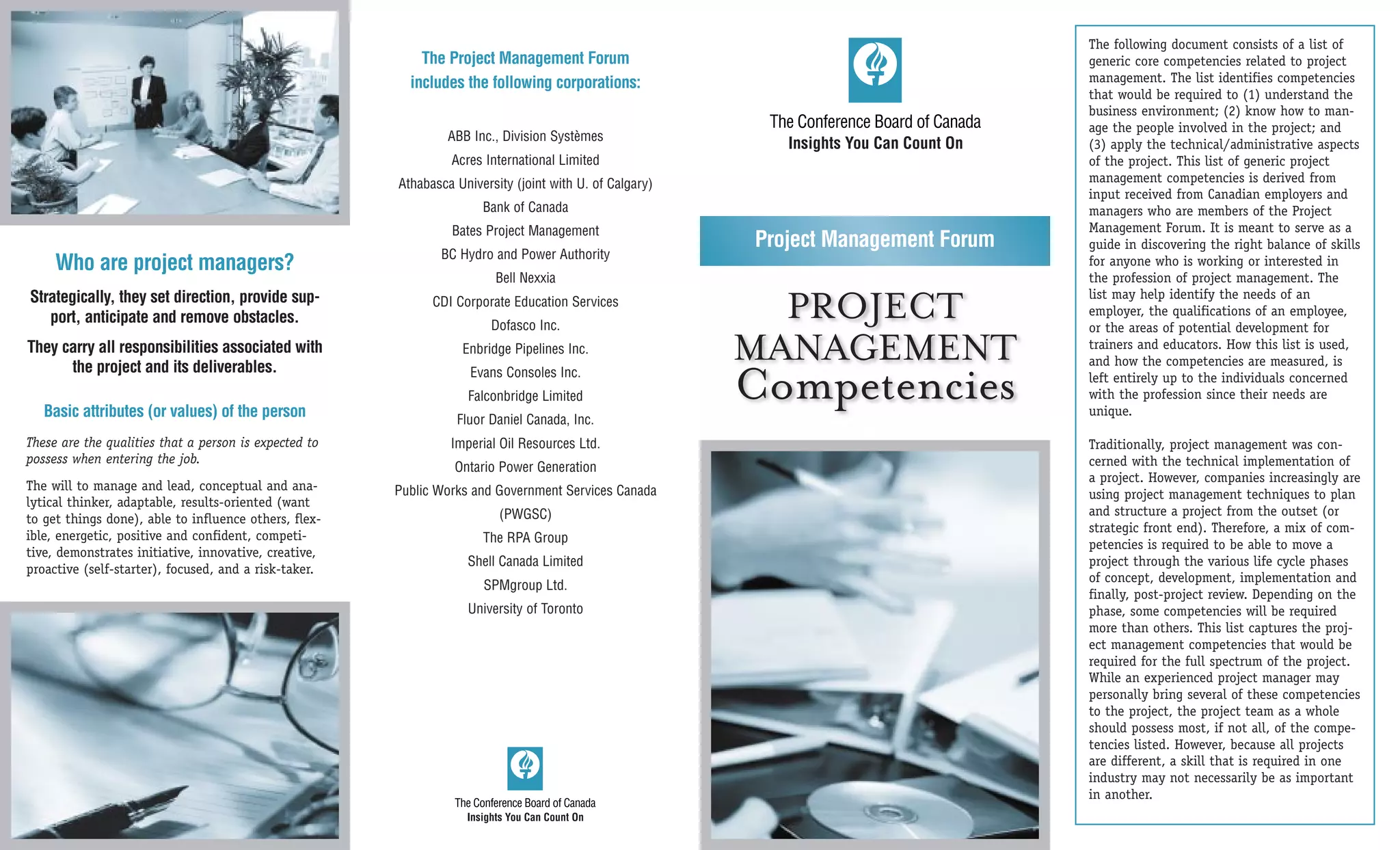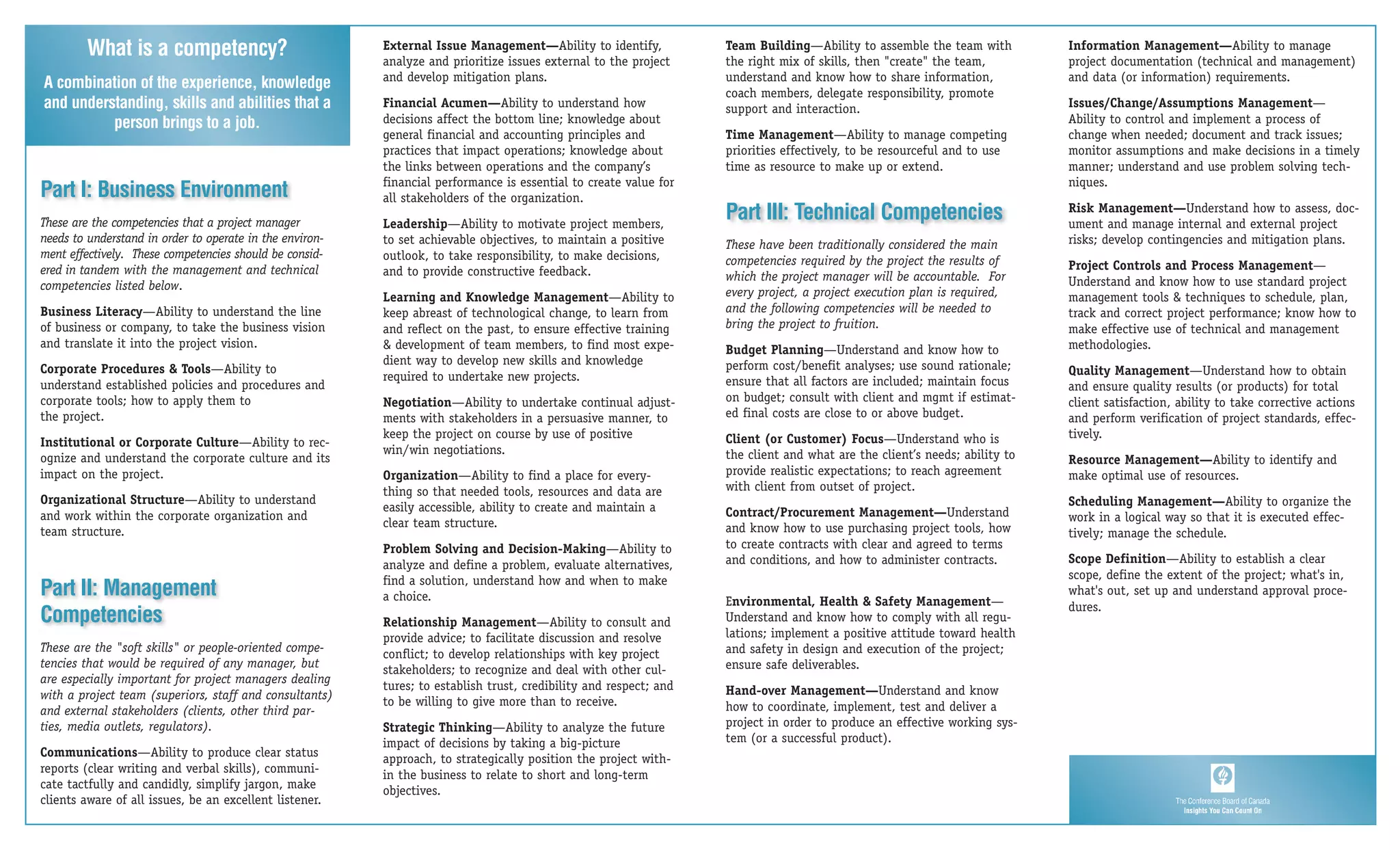The document lists corporations that are part of the Project Management Forum and defines project managers, their responsibilities, and attributes needed for the job. It also lists generic core competencies related to project management, dividing them into those needed to understand the business environment, manage people, and apply technical/administrative aspects. The competencies are intended to help identify an employer or employee's needs and guide those interested in the project management profession.

